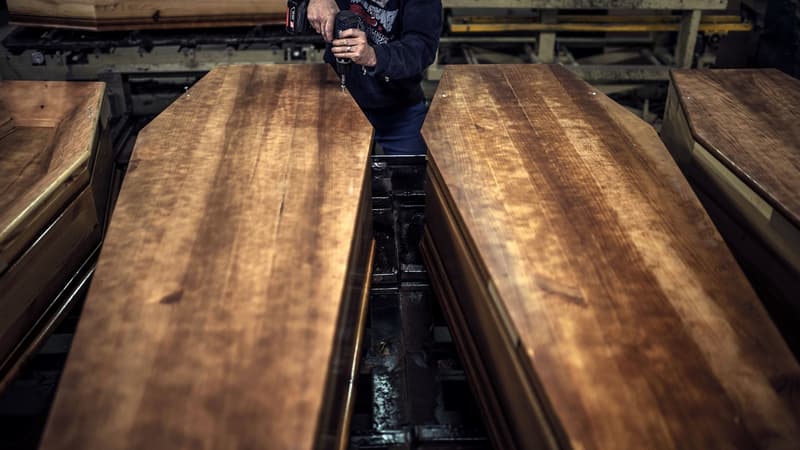Being respectful of the environment even after his death. This is the goal of a California law, signed on Sunday by the state governor, authorizing a new method of treating corpses starting in 2027. Instead of being cremated or buried, the deceased can be composted.
The process is as follows: the carcass is placed in a structure containing natural materials, such as wood chips or straw, for at least 30 days. Once completely decomposed, it is returned to the relatives of the deceased person.
Cristina Garcia, a member of the California Assembly, the state legislature behind the law, says the technique is “greener than burial, which can release chemicals into the ground, or cremation, which uses fossil fuels and releases carbon dioxide.” of carbon that warms the planet.”
“This is an alternative method of disposing of bodies that will not contribute to emissions in our atmosphere,” he said in a statement published in June.
a weird process
California thus joins the states of Washington, Colorado, Oregon and Vermont, which have already legalized human composting. It costs between 5,000 and 7,000 dollars, depending on the companies that practice this activity.
In France, this prohibited technique is called “humusation”. Asked in 2016 during a session of questions to the Government about its possible legalization, the Ministry of the Interior replied that “its introduction into domestic law would raise important questions, related in particular to the lack of legal status of the particles of this technique and its compatibility with article 16-1-1 of the civil code”.
This article states that “the remains of deceased persons, including the ashes of those whose bodies have been cremated, must be treated with respect, dignity and decency.”
Meanwhile, the site of Best Funeral Directors, a price comparator for the sector, reports that there are other alternatives, such as the “biodegradable funeral urn”, the “ecological coffin”, made of cardboard, bamboo or papier-mâché or even “natural cemeteries”. , subject to strict environmental regulations, but still little present in France.
Source: BFM TV


